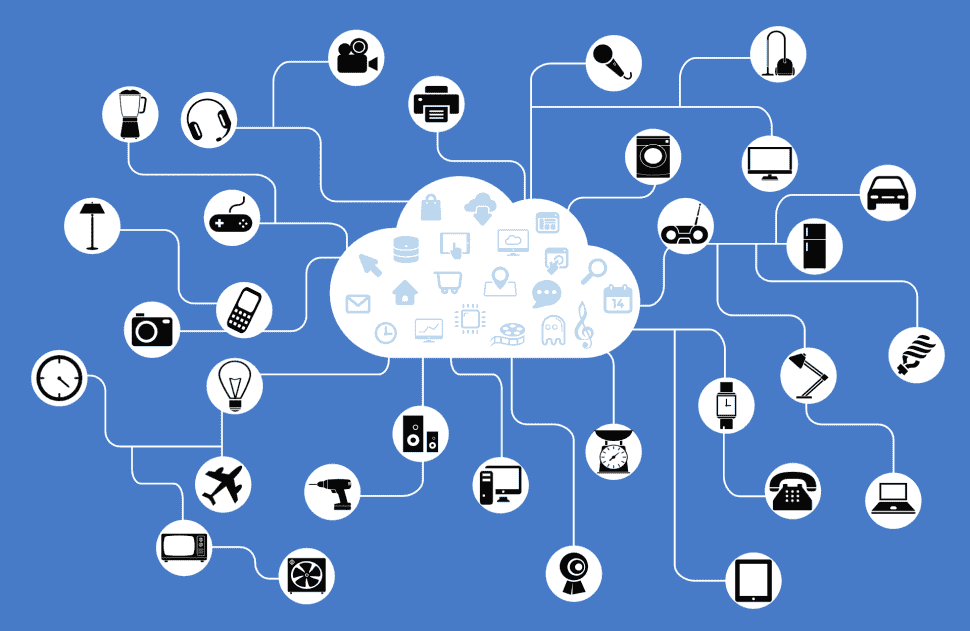
At its digital heart, the Internet of Things (IoT) is about the fast and efficient processing of data and since data is the lifeblood of modern businesses, this is creating all kinds of exciting opportunities.
Greater efficiency
Resolving the security concerns relating to IoT networks
The security of IoT device is massively enhanced by blockchain as it makes them significantly more difficult to hack and effectively eliminates concerns about IoT networks being compromised by a single point of failure (as Blockchain is a decentralised technology).
Reliably identifying the source of goods
IoT plus Blockchain plus RFID (security tags) provide a reliable means to identify goods no matter how far they travel, with the result that goods which are not positively identified as being from a particular source can be negatively identified as counterfeit.
This has many applications beyond protecting the integrity of luxury brands although the luxury goods industry is, understandably, highly enthusiastic about it. Environmentalists are also delighted to have a way to identify sensitive products which are produced legally, e.g. sustainable timber, and to differentiate them clearly from illegal products and for similar reasons, the food industry and its regulators are very relieved to have found a method by which they can quickly and accurately identify the provenance of any batch of food should they wish (or need) to do so.
Developing an in-depth understand of the customer
Many industries appreciate the IoT for the fact that it offers new ways to understand the customer. Possibly the most obvious example this is the range of smart home assistants created to make our lives easier – and to give the companies behind them an insight into how we really love our lives so they can develop goods and services which are precisely tailored to our genuine needs and wants.
It’s also well worth noting that the smarter our homes are, i.e. the more IoT-connected devices we have, the more these smart home assistants can do for us, hence they do act as an inducement to invest in smart device over standard ones, even though this generally carries a price premium.
Another example of how companies are using the IoT to gain a more in-depth understanding of their customers is the roll-out of smart meters. Even though utility companies literally make money from people using electricity, gas and water, the long-term viability of these industries depends, literally, on ensuring that these resources are used in a sustainable manner. Smart meters are helping both utility companies and their customers to understand where and how improvements can be made, thus protecting the planet and helping people to save money.
Creating new business lines
As touched on above, the IoT is both supporting and driving the push to personalise the customer experience as far as possible and the possibilities are growing all the time and set to grow even further.
For example, smart shelves are currently a feature of the retail environment, however useful niche technology generally finds itself entering the mainstream and so it is entirely possible that we’ll see homes moving from “just” smart fridges which can keep track of their contents and remind people when essential supplies are running low, to smart kitchens which can make shopping recommendations based on a combination of your family’s eating habits and the best deals at local shops.
Improving the customer experience
One of the most interesting developments of the 21st-century business environment is the increasing convergence between offline commerce and online commerce; both kinds of retailer are seeking to learn from each other in order to give the customer the best, possible experience.
Offline retailers have had to learn about the importance of staying relevant and of having conversations with (potential) customers, the IoT can help here by literally connecting businesses and customers for example through smart digital signage which allows for customised promotions, interactivity and even the option to contact a human member of staff.
Both offline retailers and online retailers need to do everything they possibly can to make the actual purchase process as easy as it can possibly be. You might think that online retailers would have a clear edge here since they don’t have to deal with physical queues but actually basket-abandonment is a huge issue in online commerce.
Admittedly, part of this is due to poor website design, but part of it is a reflection of the fact that as the internet gets bigger and some online retailers reach a size that would be close to impossible to accommodate in the real world, so their sites become more challenging to navigate.
It is very likely that this is exactly why Amazon in particular is investigating in its IoT-connected smart home assistant which will ultimately not only act to guide customers through the Amazon website (and perhaps those of partner stores) but will try to help busy people keep on top of their lives by keeping tabs on what they are doing and making customised suggestions about what they need to purchase.
